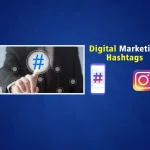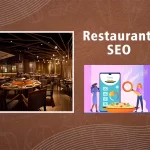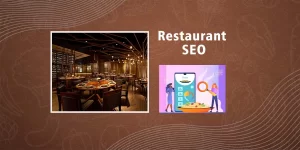Today, businesses work hard to be at the forefront of the digital world. They use technology and innovation to reach their target audiences effectively.
In this blog post, we explore the various important features of digital marketing that help businesses succeed online.
20 Key Features of Digital Marketing
1. Global Reach
In the world of digital marketing, the idea of global reach has changed how businesses grow. Using the internet and digital channels, companies can now reach people all over the world, no matter where they are located. Even a small startup in one place can have customers from different continents.
This opportunity to connect with a global audience opens up incredible chances for growth, exploring new markets, and making their brand known to people everywhere. It allows businesses of all sizes to compete on a more equal footing.
2. Cost-Effective
One of the major advantages of digital marketing is its cost-effectiveness compared to traditional marketing methods. Digital campaigns often require lower investments, making it more accessible to businesses with limited budgets. From social media advertising to email marketing, businesses can choose cost-effective strategies that yield impressive results.
Additionally, digital marketing allows for precise targeting, ensuring that resources are focused on the most relevant audience, further optimizing the return on investment (ROI) and maximizing the impact of marketing efforts.
3. Targeted Advertising
One of the key features of digital marketing is its ability to deliver targeted advertising. Unlike traditional advertising that reaches a broad audience, digital platforms allow businesses to pinpoint specific groups based on demographics, interests, behaviour, and more.
This precision targeting ensures that the right message reaches the right people at the right time, increasing the chances of engagement and conversion. By customizing ads to individual preferences, businesses can create personalized experiences that resonate with their audiences, ultimately driving better results and return on investment.
4. Measurable Results
Another popular advantage of digital marketing is the ability to track and measure its performance. Through various analytics and tools, businesses can easily monitor their online marketing efforts, such as website traffic, click-through rates, conversions, and customer behavior.
This data-driven approach allows for informed decision-making and optimization of marketing strategies based on what works best. By understanding which campaigns are successful and which ones need improvement, businesses can refine their tactics to achieve better results and maximize the impact of their digital marketing initiatives.
5. Personalization
In digital marketing, personalization is the art of customizing experiences to suit individual preferences. By using data and insights about customers, businesses can create customized content, product recommendations, and targeted offers. This approach fosters stronger connections with customers, as they feel understood and valued by the brand.
Personalization also enhances engagement and conversion rates by delivering relevant messages that resonate with each customer’s interests and needs. As a result, businesses can build brand loyalty and long-term relationships, leading to increased customer satisfaction and business growth.
6. Interactivity
Interactivity is one of the key features of digital marketing that encourages engagement and active participation from users. Unlike traditional marketing methods, digital platforms enable two-way communication between businesses and their audiences. Through interactive elements like quizzes, polls, surveys, and social media interactions, customers can actively interact with brands.
This fosters a deeper connection and sense of involvement, leading to increased brand loyalty. Additionally, interactive content provides valuable insights into customer preferences and behavior, allowing businesses to fine-tune their marketing strategies and offer more relevant and engaging experiences.
7. Real-Time Engagement
In digital marketing, real-time engagement refers to immediate interactions between businesses and their customers. Through channels like social media, live chat, and instant messaging, businesses can respond promptly to customer inquiries, feedback, and concerns. This makes customers trust the brand more and builds better relationships.
Real-time engagement also allows businesses to address issues swiftly, providing excellent customer service and enhancing overall brand reputation. By being responsive in real-time, businesses can create positive experiences and leave a lasting impression on their audience.
8. Various Media Formats
In digital marketing, businesses have the freedom to use different types of content to engage their audiences. They can create text-based content, images, videos, infographics, podcasts, and interactive content. Each format offers a unique way to communicate messages and connect with the target audience.
Businesses can leverage the power of storytelling through videos, capture attention with eye-catching images, or provide valuable information through informative blog posts. By using a mix of media formats, businesses can attract diverse audience preferences, enhancing overall brand visibility and impact.
9. 24/7 Availability
In digital marketing, the advantage of 24/7 availability allows businesses to be accessible to customers at all times. Online platforms, websites, and automated systems enable businesses to operate non-stop, serving the needs of global audiences in different time zones.
This means that customers can access information, make purchases, or seek assistance whenever they want, advancing convenience and customer satisfaction. Being available round the clock enhances brand reliability and ensures that businesses never miss out on potential opportunities or valuable interactions with their audience.
10. Social Media Marketing
Social media marketing is a powerful strategy where businesses use social media platforms to promote their products, services, or brand. It allows companies to connect with their target audience, build brand awareness, and engage with customers directly.
Through posts, ads, and interactions, businesses can share valuable content, run targeted campaigns, and receive feedback in real time. Social media platforms offer a vast user base and various targeting options, making it an effective tool for reaching specific demographics and driving traffic to websites, ultimately boosting business growth.
Elevate your business game with our top-notch Social Media Marketing Services designed for steady and sustainable growth.
11. Content Marketing
Content marketing is a powerful approach where businesses create valuable and relevant content to attract and engage their target audience. Through blog posts, articles, videos, infographics, and more, companies provide useful information, entertainment, or solutions to customer problems.
The goal is to build trust, establish authority in the industry, and ultimately drive customer action. By sharing valuable content, businesses can make customers like them more, become loyal to the brand, and think of them as a reliable source for a long time, which helps the business do well.
Want your brand to stand out? Learn more about Content Marketing Services.
12. Search Engine Optimization (SEO)
The goal of search engine optimization, often known as SEO, is to increase a website’s visibility in search engine results. By optimizing various aspects of a website, such as keywords, meta tags, and content, businesses can rank higher in search engine listings.
This increased visibility drives organic traffic to the website, leading to more potential customers discovering the business. SEO is an ongoing process, and businesses that implement effective strategies can gain a competitive edge, attract targeted audiences, and achieve long-term online success.
Ready To Grow Google Ranking? Learn more about SEO services.
13. Pay-Per-Click (PPC) Advertising
PPC advertising is a digital marketing strategy in which companies run advertisements on websites and apps like social media and search engines. Businesses only pay for the advertisement when someone clicks on it, as compared to a set fee. Ads can be displayed to people based on their search queries or interests, allowing for more exact targeting.
PPC campaigns can drive immediate traffic to a website and offer valuable data on ad performance. Businesses can control their budgets and measure the effectiveness of their ads, optimizing their strategies for better results.
14. Email Marketing
Email marketing is a digital marketing strategy where businesses use emails to communicate with their audience. It involves sending targeted messages to customers and potential customers, sharing updates, promotions, and valuable content. Email marketing is an effective way to build and maintain relationships with customers, raise leads, and encourage engagement.
By segmenting email lists and personalizing messages, businesses can deliver relevant information to specific groups, increasing the chances of converting recipients into customers. It also allows businesses to track the performance of their email campaigns and make improvements for better results.
Reach your audience effectively and engage with them on a personal level through our strategic email marketing solutions.
15. Influencer Marketing
Influencer marketing is a digital marketing strategy where businesses collaborate with influencers, who are popular and trusted figures in specific niches, to promote their products or services. By leveraging the influencers’ large and engaged following, businesses can reach a wider audience and build credibility.
Influencers create content featuring the brand, showcasing its benefits and value. This approach helps businesses tap into the influencers’ established trust and authority, driving brand awareness, engagement, and potential conversions. It’s an effective way to connect with target audiences and boost brand visibility in the digital space.
16. Mobile Marketing
Mobile marketing is a digital marketing strategy that focuses on reaching and engaging audiences through mobile devices like smartphones and tablets. With the increasing use of mobile devices, businesses can leverage mobile apps, SMS marketing, mobile-friendly websites, and location-based targeting to connect with customers on the go.
Mobile marketing allows for personalized and timely interactions, making it easier to deliver relevant content and offers. By optimizing for mobile, businesses can enhance user experiences, drive customer engagement, and effectively capture the attention of the mobile-savvy audience.
17. Video Marketing
Video marketing, as a digital marketing approach, employs videos to advertise and endorse products, services, or brands. With the growing popularity of online videos, businesses can create engaging and compelling video content to reach and connect with their target audience.
Videos can be shared on various platforms like social media, websites, and video-sharing platforms, offering a dynamic and interactive way to communicate messages. Video marketing helps businesses showcase their offerings, tell stories, and demonstrate product features, leading to increased brand awareness, customer engagement, and potential conversions.
18. Retargeting/Remarketing
Retargeting or remarketing is a digital marketing tactic that aims to reconnect with users who have previously visited a website but didn’t take the desired action, such as making a purchase or filling out a form. Through cookies and tracking pixels, businesses can show targeted ads to these past visitors as they browse other websites or social media platforms.
This strategy helps reinforce brand awareness, reminds users of their interests, and encourages them to return and complete the desired action. Retargeting is an effective way to recapture potential customers and improve conversion rates.
19. Artificial Intelligence (AI) Integration
AI integration is the process of incorporating artificial intelligence technologies into various aspects of business operations and marketing strategies. AI can be used to analyze large datasets, predict customer behavior, personalize content, automate customer support, and optimize advertising campaigns.
By leveraging AI, businesses can make data-driven decisions, deliver personalized experiences, and enhance overall efficiency and effectiveness. AI integration allows for smarter, more adaptive marketing strategies, enabling businesses to stay ahead of the competition and meet the evolving needs of their customers in the fast-paced digital landscape.
20. Marketing Automation
Marketing automation is a digital marketing strategy that involves using software and technology to automate repetitive marketing tasks and workflows. It allows businesses to streamline processes like email campaigns, lead nurturing, social media posting, and customer segmentation.
In marketing automation, businesses can deliver timely and targeted messages to the right audience, saving time and effort. It also enables personalized interactions, lead scoring, and performance tracking, helping businesses optimize their marketing efforts and drive better results with less manual intervention.
Conclusion
In conclusion, the diverse and game-changing features of digital marketing have revolutionized the way businesses connect with their audiences. From global reach and cost-effectiveness to targeted advertising and measurable results, digital marketing offers unparalleled opportunities for growth and success.
By leveraging the power of mobile marketing, video marketing, and AI integration, businesses can stay ahead in the fast-paced digital landscape. Embracing these features of digital marketing is essential for businesses to thrive and succeed in today’s hyper-connected world.









